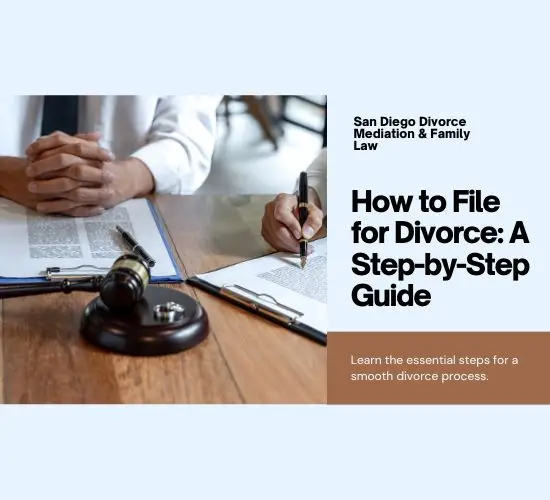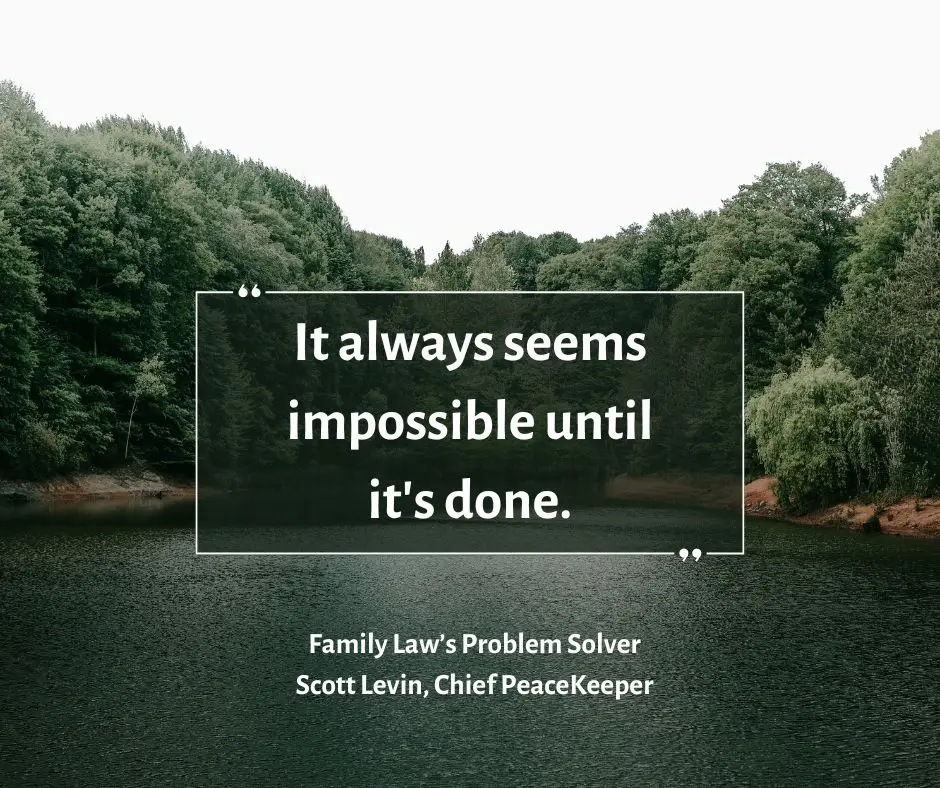Filing for Divorce in San Diego
Divorce can be a complex legal process, particularly in a diverse and populous county like San Diego. If you’re considering filing for divorce in San Diego, California, understanding the specific steps and requirements is crucial for a smooth process. This comprehensive guide, spanning over 500 words, will walk you through the essential steps of filing for divorce in San Diego, highlighting key considerations and potential challenges.
Understanding the Divorce Process in San Diego
The divorce process typically involves filing a petition with the court, serving the other party, disclosure of financial information, negotiation or settlement, and eventually, a court trial if an agreement cannot be reached.
The timeframe of a divorce depends on the spouses involved. A Judgment of Dissolution can be submitted to the Court as soon as 31 days after the date of service of the Petition which means that the case can be resolved in a matter of months. Dissolution cases may also take significantly longer if there is no cooperation between the parties.
California’s No-Fault Divorce Law
San Diego, adhering to California state laws, follows a no-fault divorce system. This means you can file with the court for divorce without needing to prove wrongdoing by your spouse and you an reach an agreement that is approved by a judge without ever stepping foot in a courtroom. The main reason for divorce in San Diego is ‘irreconcilable differences.’ This means that the couple can’t get along, which causes the marriage to end. The same laws apply whether you seek a legal separation or divorce, whether you hire a family law attorney or opt for a mediation process.
When completing the FL-100 form known as the Petition, you will be asked to state the reason for divorce and one of the options provided is ‘irreconcilable differences’ among others. This is a catchall appropriate for the vast majority of divorce filings in San Diego County.
Meeting Residency Requirements
Before filing for divorce in San Diego, you must meet certain residency requirements under the divorce laws of California. Either you or your spouse must have been a California resident for at least six months and a resident of San Diego County for at least three months prior to filing for divorce. This requirement is crucial for the San Diego courts to have jurisdiction over your case.
How do I File for Divorce in San Diego?
To start the divorce case process, you must fill out and submit the required forms to the court. These forms include the Petition for Divorce (Form FL-100) and the Summons (Form FL-110). They explain the reasons for divorce and any temporary orders needed. In San Diego, you can find these forms online or at the courthouse.
Here are the four courthouses serving San Diego County:
North County Superior Court located at 325 South Melrose Drive, Vista, CA 92081.
Central Courthouse located at 1100 Union Street, San Diego, CA 92101
East County Courthouse
South County Courthouse
How to File Divorce Petition San Diego
Once you’ve filled out your forms, file them with the clerk of the Superior Court of California, County of San Diego. This step involves paying a filing fee, which varies but is generally around $435. If you cannot afford the fee, you can request a fee waiver. Keep copies of all filed documents for your records.
For help with how to file for divorce in San Diego, our divorce paralegals near me can assist with divorce papers preparation and court filings.
Can a Mediator File Divorce Papers?
Our California mediator Scott Levin often tells couples when explaining the mediation divorce process that our work is primarily two fold. First, we help clients arrive at a negotiated settlement through our San Diego divorce mediation services. Second, our firm handles all of the court drafting and legal work that is required for the settlement to be approved by the judge. Once we reach agreement, Scott Levin drafts the Marital Settlement Agreement and handles all the preparation of court forms and filing. This means our clients never worry about forms, filing or going to court.
A flat fee cost includes our mediator filing divorce papers and all required forms and documents. We prepare and file the necessary divorce papers with the court which makes our divorce process easy and less stressful.
How to Serve the Divorce Papers?
After filing, you need to serve the divorce papers to your spouse, a legal requirement known as ‘service of process.’ In San Diego, this can be done by anyone over the age of 18, except yourself. Once your spouse is served, they have 30 days to respond.
In an uncontested divorce case where the parties are willing to work collaboratively to reach a divorce settlement, the Response is not necessarily a requirement. In a contested case, the Response must be filed by the Respondent. In this contested scenario, a failure to respond may allow you to proceed with a default divorce.
For our clients, Scott Levin typically serves the divorce papers by email or at our office. The service is accepted voluntarily simply with an electronic signature. This again differentiates our mediation process vs divorce lawyers. As Scott Levin explains,
“I have heard from hundreds of people how difficult it can be to serve their spouse the divorce papers because they are unwilling and antagonistic. That is a reality for many but not one of my clients in all my years has ever expressed this frustration. We open the court case and then notify both sides once it has been accepted by the court and a simple DocuSign is done in seconds or if the client comes to our office, we simply hand it to them and it’s just never a problem.”
What Happens After Divorce Papers Are Served In An Uncontested Case?
In uncontested cases, especially when navigating the separation process with an uncontested divorce lawyer, typically the next steps are to exchange financial information by disclosing assets and debts and income, and then to get into the settlement discussions where you will negotiate a divorce settlement. This situation often raises the inquiry, “What is the duration for obtaining a divorce in California?” The response varies based on multiple factors.
Financial Disclosure
Both you and your spouse are required to complete financial disclosures, detailing all assets, debts, income, and expenses. This step is essential for fair property division and appropriate determination of support obligations. In San Diego, these disclosures must be exchanged within 60 days of filing the petition.
Reaching an Agreement or Going to Court
If you and your spouse agree on the divorce terms, you can have a mediator or attorney draft a marital settlement agreement. If you cannot agree, you may need to go to court, where a judge will decide. San Diego offers mediation services to help couples resolve disputes before going to court.
Child Custody and Support in San Diego Divorces
Child custody and support arrangements are among the most critical issues in divorce cases involving minor children. In San Diego, child custody is determined based on the best interests of the child, taking into account factors such as parental relationships, child preferences, and the ability to provide a stable and nurturing environment.
Parents may agree on custody arrangements through mediation or court hearings, or the court may make decisions if the parties cannot reach an agreement.
Child support in California is calculated based on statewide guidelines that consider factors such as each parent’s income, number of children, and custody arrangements.
Finalizing Your Divorce
In San Diego, as in the rest of California, there is a mandatory six-month waiting period from the date your spouse is served until your divorce can be finalized. However, many mediated settlements are submitted to the court one or two months after the date of service. In these cases, a judgment of dissolution can be entered before the six months.
The six month rule in these cases means that your marital status cannot terminate until after 6 months. But the agreement can be reached and the judge can sign off on that agreement beforehand.
Work With Scott Levin as Your California Divorce Mediator
At San Diego Divorce Mediation & Family Law, we are dedicated to guiding you through the journey of obtaining your divorce in California. We recognize that you may have inquiries regarding the procedure, and we are committed to resolving disputes so you can get through the legal process undamaged. Prior to beginning the completion of your divorce documents, please give us a call. We can simplify the process for you and ensure that you are safeguarded as everything progresses.











